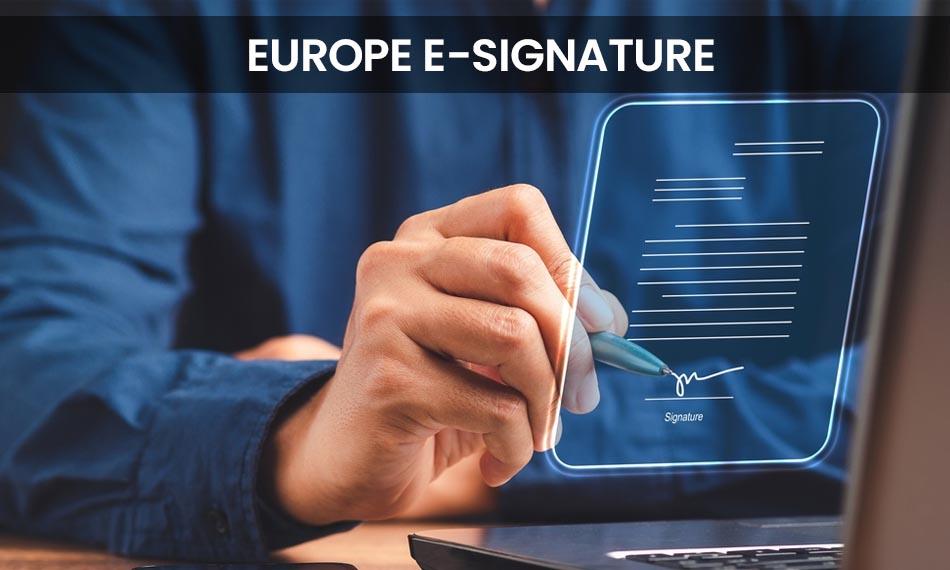The Future Demand for E-Signature in Europe

We've used traditional "wet" signatures for hundreds of years. They can be found in many various forms, such as seals, stamps, markings, and signs. However, as new technology changes our environment, they are soon becoming obsolete. The newer methods of signing are more streamlined, convenient, and easy.
Accepting electronic signatures on critical papers, such as mortgages or legal agreements, is now simpler than ever. Electronic signatures have made it possible to accept a new job, establish a bank account, and close a property with only a few mouse clicks.
Regulation No 910/2014, often known as eIDAS, which went into effect across all of Europe on July 1, 2016, recognizes electronic signatures as legitimate and lawful. In addition, enterprises and institutions are digitizing their documentation processes at a rapid rate as a result of the region's significant digital transformation.
Additionally, the growing use of cloud computing has made it possible for businesses and consumers to transact online, requiring identification and authorization from both sides.
The digital equivalent of an ink signature is an electronic signature or e-signature. A signature may now be obtained electronically, saving time and money by eliminating the need to dispatch couriers across town or transmit documents overnight express. Additionally, they are more protected than traditional signatures, traceable, time-stamped, and produce less trash.
Moreover, electronic signature technology has enormous potential as a tool for businesses. The top eight reasons to begin utilizing them are shown below.
Environment Friendly: You undoubtedly already know that there is a serious problem with deforestation. However, did you know that businesses that implement eco-friendly business methods are given an advantage over their rivals? Using e-signatures, for example, is an ecologically responsible approach that will help you hire the greatest people while also saving the pandas.
Speed: If you've ever had to gather a signature, you are aware of the length of time it may take from beginning to end. Electronic signatures offer a super-quick option, allowing the actions that come after the signature to start right away.
Efficiency: The process of getting a signature can be time-consuming and difficult, requiring many individuals to copy, sign, print, distribute, witness, and keep the document. By capturing electronic signatures at the push of a button, paperwork is handled much more quickly on both sides.
Security: Electronic signatures are saved, sealed, and safeguarded against a security breach, hackers, and other risks because of the digital encryption and audit trails connected to the digital signature (more on them below).
Keeping and Verifying Records: It's not unusual for a file cabinet to be stuffed to the brim with manila folders and loose paperwork. You can store all of your papers in order and protected from fires, floods, and security concerns in one location using electronic signature software, which is a groundbreaking development for the HR industry.
SOURCE: P&S Intelligence

- Art
- Causes
- Crafts
- Dance
- Drinks
- Film
- Fitness
- Food
- Games
- Gardening
- Health
- Home
- Literature
- Music
- Networking
- Other
- Party
- Religion
- Shopping
- Sports
- Theater
- Wellness




